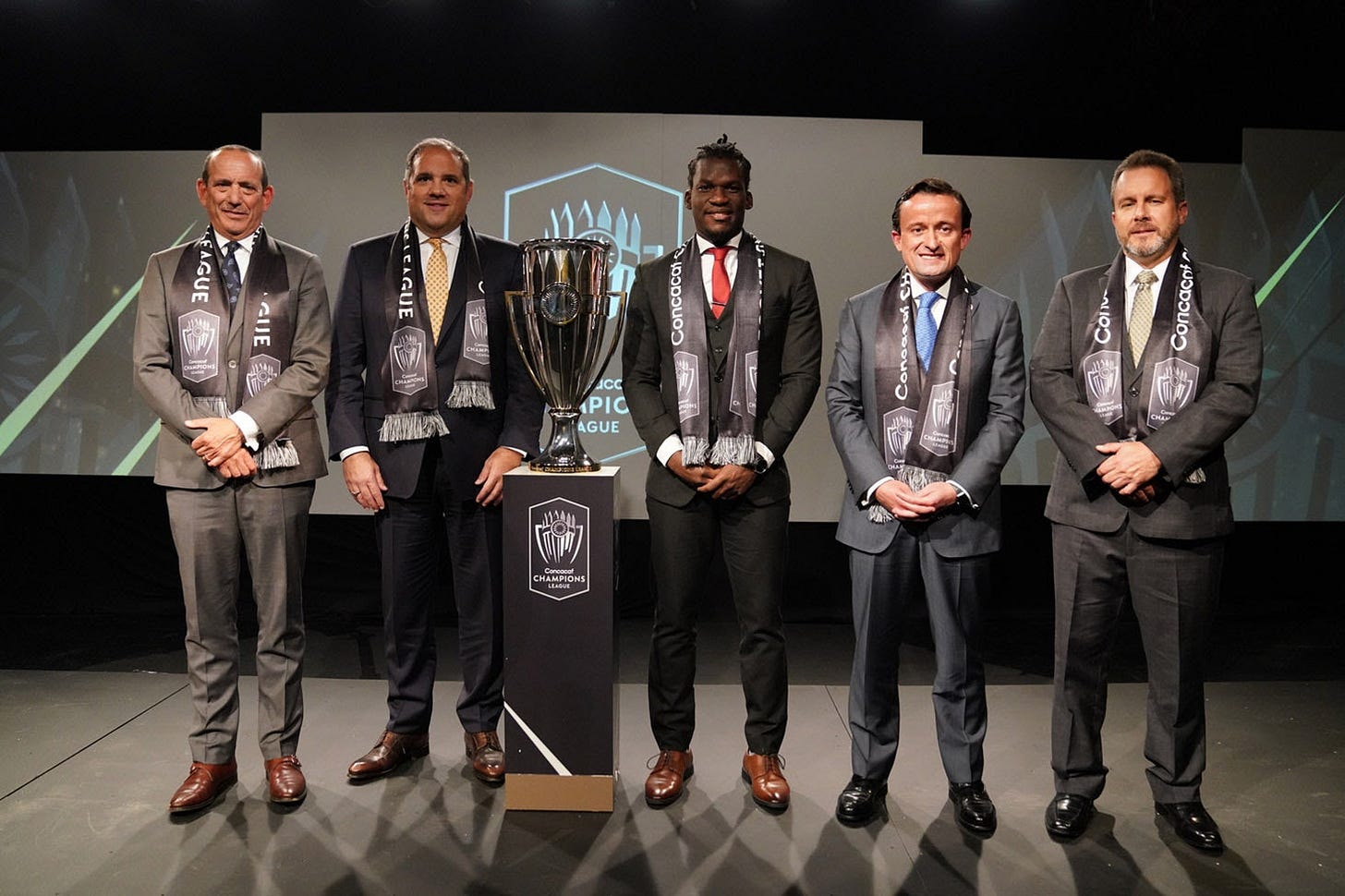🇹🇹 How Camara David is trying to move Caribbean soccer past the "dark ages"
What is the CFU? What does its General Secretary do? We asked!
Getting CONCACAFed is a newsletter sharing stories and analysis from the Concacaf region.
I write and report on stories others overlook, whether they be happening in Bonaire, El Salvador, Mexico or somewhere in between.
If you know the name of a Caribbean soccer official, it’s usually not because of a good thing.
Jack Warner. Jeffrey Webb. Costas Takkas.
All were indicted in the 2015 FIFA corruption case. Warner is still fighting his charges. Webb awaits sentencing more than seven years after pleading guilty. Takkas served time and paid more than $3 million in restitution.
Camara David knows that tainted legacy well. The Trinidad and Tobago native has seen the eyebrows raise when he shares his background at FIFA training courses.
David, a FIFA Master program graduate who worked in the TTFA before taking his current role as General Secretary of the Caribbean Football Union, insists things are different now.
“I’ve heard stories of how things used to happen, and I know how it is now. It’s like…wow,” David told me when we chatted in late 2021. “When I was (general secretary) of the TTFA, I had to be sending back requests that were 20 cents off. It’s really strict and stringent, and the rules are very much adhered to now. Back then, from what I’ve heard, man, it was so bad.”
David wants to be the image of a new kind of Caribbean soccer leader, one that advances priorities that will enrich the region, not himself.

There is much to do and to undo.
Let’s take a step back. If you’re reading an in-the-weeds Concacaf newsletter, you’ve probably heard of the CFU and perhaps the other subconfederations that make up Concacaf: UNCAF in Central America and the loosely organized NAFU in North America.
But what the hell does the CFU even do?
“Our main goal is to keep the Caribbean united and speaking from one voice,” David said. “When our MAs pool together their TV rights, we’re more or less charged with the responsibility of getting investment for those rights.
“We do a lot to help our member associations with development. What FIFA isn’t doing, what Concacaf isn’t doing, we get into there.”
That includes tournaments like the U-14 Challenge Series, a tournament alternating between boys and girls each year. It also involves more big-picture efforts like the #GirlsPlayFootball campaign to continue normalizing the idea of women and girls playing soccer. It also includes messaging about the vocational possibilities in sports for women in the region.
The idea is to get more CFU teams into FIFA competitions across the board, something that starts with building grassroots participation in a region where top athletes often choose to play cricket or run track.
They’re also working to improve the quality of officiating in the region, increase the use of technology, and to train more leaders like David.
“There are so many young persons in the Caribbean trying to make a bridge in sport. We have bright ideas, but I’ve heard it said that football is an old man’s club,” said David, who is in his early 30s. “Everywhere I go I’m the youngest person in the room.
“It’s tough at times getting the respect of theirs, but as you speak and get that experience, people tend to respect you afterwards.”
David hoped to make his mark in international soccer on the field but never played professionally. He put the blame on injuries and then laughed, “We always use that excuse!” showing some things are universal no matter the country.
Inspired by his mother, who told him he still could work in the sport, David studied economics and sports management for his undergrad before finding the FIFA Master program.
Education is key for David, who also lectures at the University of the West Indies. So too is convincing people inside and outside of the region that the region really is ready to make progress.
“I’m personally really excited to be here at the CFU because we have so many new projects that we want to roll out,” he said. “It's all about planning these different things and coming out of the dark ages of Caribbean football and world football,
“It's sort of blank canvas, really and truly.”
David understands if that can be difficult to believe. After all, the region still has some infamous names among its leadership. Plus, some progressive ideas - investigating a regional league, investing heavily in youth development, conducting events that allow for teams and leagues outside the region to quickly scout and ideally buy young players - have been attempted in the past with various levels of success.
He knows the proof will be in the taste of the pudding but believes that, if proper backing comes in, the CFU will be able to help its members reach new heights.
“I don’t see, personally, challenges in getting things done. (The presidents of the federations) are open to new ideas,” David said he observed in the first year and change on the job. “Obviously, we’ve got financial constraints like everywhere in the Caribbean in terms of sport, but other than that I think it’s been fantastic.”
If he’s truly able to push the game forward in the Caribbean, David will have done something so few have been able to do for decades and decades, making sure his name is remembered as a Caribbean football official who did things for good, not ill.







Was there more information on how he came across this FIFA Master program or how that went for him? That sounds very interesting and weird because of what FIFA is.